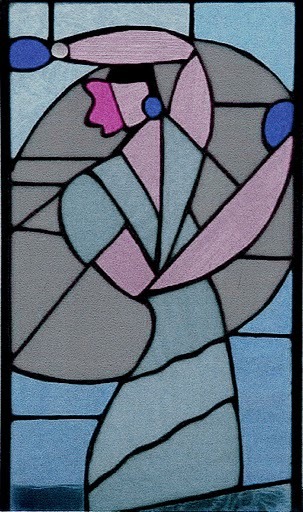Larry Karush is the Joseph Campbell of music. If you name any genre, the L.A. pianist (a prof at Occidental College) can trip out a 10-finger dissertation on it; his main focus, though, is correlation and synthesis. So in the same way that Campbell sleuthed out links among gods & myths all over the world, Karush combines musics to show how they can work together. Global unity might never get any realer than this.
Karush added another shade of vividness to his recent live re-emergence with the latest of several stands at Little Tokyo's Blue Whale. (It's a most amiable venue, by the way, with booze, modular seating, good bar food, and parking accessible from Second Street underneath its unobjectionable three-level mall, which harbors a few restaurant options.)
A slight, alert-eyed Karush laid out his map on Friday alone, which is the best mode for appreciating any great pianist. He first applied his sure, light touch to a formal boogie-woogie made mysterious by surprising overtones that seemed to rise between his digits like smoke. His "Samba Five" smoothly slipped an extra beat into each measure while mixing in Asian harmonies, delicious dissonances and Gershwin flurries you'd never hear in Rio; he also kept time with some kind of mini-high-hat triggered by his left foot. Karush paid electrifying tribute to Bach via his next segment, which laid samba rhythms on J-Bast's fuguatory math.
The aftermarket time signatures and ingenious reharmonizations kept coming with Jan Hammer's "I Remember Me," stride giant James P. Johnson's "Modernistic," Jane Ira Bloom's "Hawkins' Parallel Universe," an ethereally layered "Scriabin's Cha-Cha," and some of Karush's less sourceable original material (was that a hint of Aretha?), which exorbited a melodic yet abstract character. The most emotional moment arrived with his "Left Hand Jive," a gentle number with a boogie heart dedicated to the late drummer Dan Morris. And more. And that was only the first set.
Now, it would be impossible to make all this look easy, but Karush sure wasn't sweating. He even blew on his hands to warm 'em up, sighing non-ironically, "I could go on for hours." The man could entertain the deaf with only his technique -- right hand often flapping effortlessly over left like a duck over a dog.
One could go on about Karush, who ran just as many scrambles (Afro, Latin, Cole Porter) on Saturday with his quartet, but those "sidemen" deserve a word, too. This was Rhythm Night, with substantial swaths devoted to the multi-percussion team of Randy Gloss and Brad Dutz. The pair constantly broke up the beat while driving it forward, switching off among wood block, cowbell, cymbals, hand drums, traps . . . mini-symphony stuff. Facing each other, they also assembled a preconceived multi-instrument duo spotlight that was just ridiculous: Gloss oudoing Alex Van Halen with just tambourine, Dutz clacking like an army of flamencans on castanets. Expressionless during that tour-de-force, they smiled and shook hands at the end, like, "Oh yeah, percussionists don't COMPOSE at all."
The overall Saturday sound could have used more bottom -- no reflection on the excellent bassist Chris Colangelo; he was just stuck in a corner where his waves couldn't fully permeate.
Make no mistake, Larry Karush is no party-trix guy; he's a deep artist with a bottomless well of skill and a conceptual brain to match. Hearing him leaves an impression of wholeness and nexus you might not even realize. Before the gig, I had a chat about physics and Pythagoras with piano tuner Mel Morris, who has worked for a million 88-ers over the course of 40 years. And you'll never guess whom he ranks number one.
STAINED GLASS BY MARGARITA VANLANDINGHAM.

